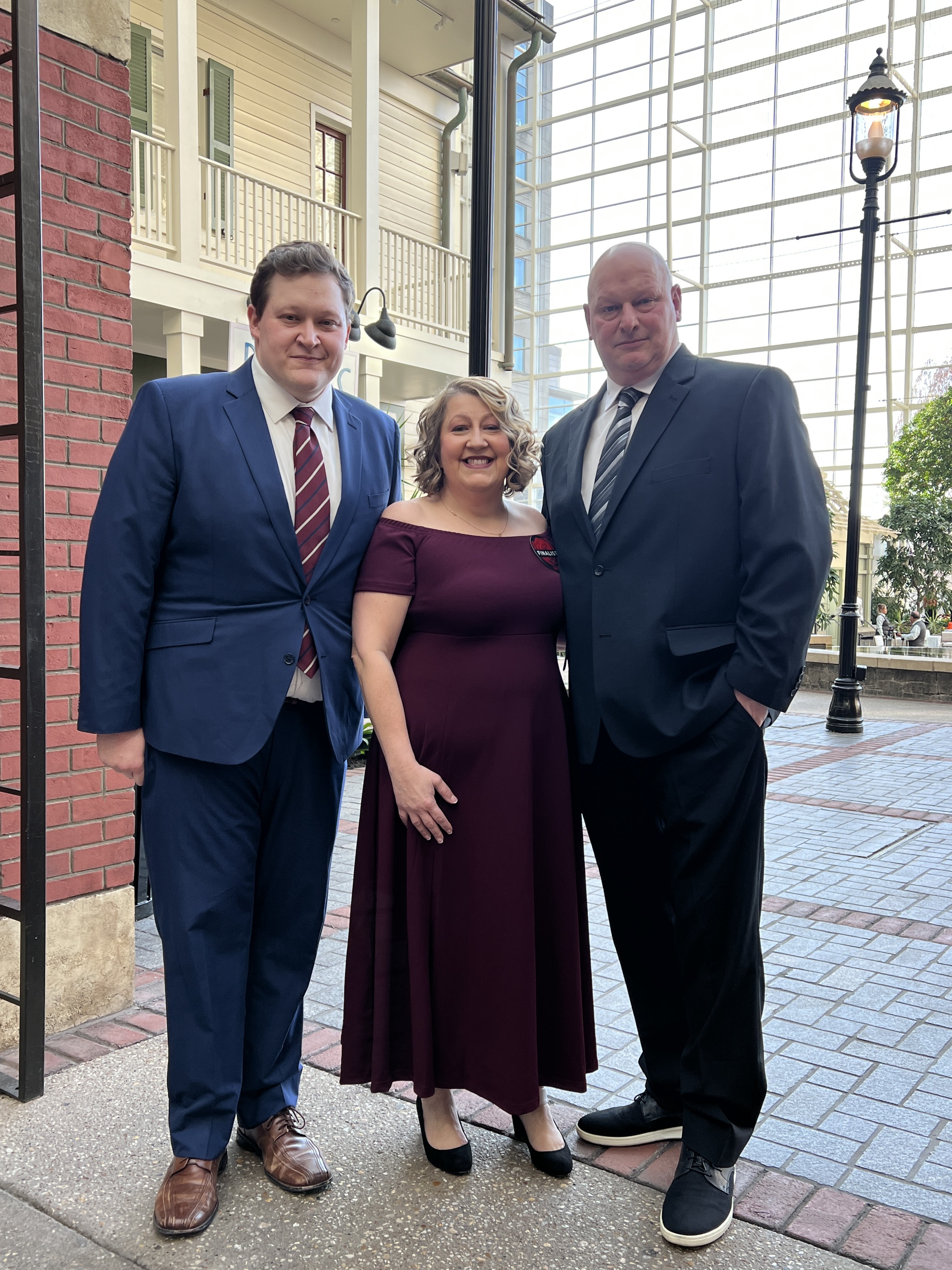When the Professional Convention Management Association Foundation announced the finalists for its 2023 Event Strategist of the Year award, all three were from medical associations. Last month, we featured the work and perspective of the award’s winner: Kristi Casale CMP, DMCP, vice president for meetings and continuing education, American Academy of Pediatric Dentistry.
This month, we speak with another finalist for the award: Lisa A. McGlashen, CMP, CEM, HMCC, director of meetings and exhibits for the American Society of Cataract & Refractive Surgery. PCMA noted that in less than one year at her job, McGlashen “tripled the forecasted revenue for AACR during the [late stages of the] pandemic. She also concepted the Tailgate Tradeshow for the Philadelphia Chapter of PCMA, which is coming back for another year.”
MeetingsNet: After 13 years at the American Association for Cancer Research, you came to ASCRS in May 2022. What were the initiatives you took on that earned you the award-finalist nomination from PCMA in such a short time?
Lisa McGlashen: For much of 2022, I basically had two full-time jobs: One as the director of exhibits with AACR and the other as president of the Philadelphia chapter of PCMA. My job for both organizations was to ensure we remained financially stable and had continuous revenue streams. For AACR, I was able to exceed my expected budget by selling virtual exhibit space and bringing in a record $3.5 million in total. What helped was that I developed a free webinar series for exhibitors to help them have a virtual-show experience with us that met their objectives. Knowing that they weren’t getting their expected return on investment through many virtual events in the pandemic, I wanted to give back to them. The new webinar series allowed our exhibitors to present to their target audience at no expense.
For PCMA Philadelphia, I knew we needed to give back to our suffering suppler community. During the pandemic, visiting with potential clients became nonexistent. This event gave CVBs and hoteliers the opportunity to see their clients, and get back to in-person business faster. The Tailgate Tradeshow that I introduced last year will happen again in 2023.
The chapter also created other campaigns that made it more affordable for suppliers to sponsor and attend events. All of our efforts kept the chapter financially stable during a difficult period.
MeetingsNet: What were the most difficult challenges around your initiatives and how did you overcome them?
Lisa McGlashen (in photo with son Ryan and husband Bill): The most difficult part was not having a crystal ball and not knowing when we would be out of the pandemic. For both AACR and the PCMA chapter, we were financially dependent on companies signing up to exhibit. For AACR, the challenge was to make sure exhibitors were getting enough ROI, which we knew was difficult in a virtual setting. So, we developed many new avenues, such as interactive games, a virtual headshot lounge, and networking lounges. But many companies were not fully satisfied with the results—they weren’t getting enough interaction with attendees, and we needed to find a different solution. So, I introduced a webinar series that was tailored to each company. They were each given 20 minutes to present virtually to a target audience and conclude with a Q&A session. This complimentary event series was very successful and appreciated by our exhibitor community.
The overall experience of the pandemic years reinforced the fact that face-to-face medical meetings are really valuable to suppliers, and that exhibiting and sponsoring on site is of great benefit.
For PCMA Philadelphia, the most difficult challenge at last year’s edition of the trade show was relying on the weather, because we held it outside in keeping with the “tailgate” theme. Unfortunately, the weather didn’t cooperate. We had to move the event indoors, which had an impact on attendance. Many people didn’t want to travel in the rain, even if it was just a short drive. We still had a solid event, but the format will change this year. We’ve planned for an indoor event so that we don’t have to watch the weather app all day and night. We’re also combining it with our biggest educational program. We’re confident this new format will be very successful.
MeetingsNet: What are one or two challenges about planning events for a medical audience that you feel are unique or more difficult than planning events for professionals in other industries?
Lisa McGlashen: Medical meetings in particular must be held in person. We could never survive in a totally virtual world. Medical professionals need the interaction with their peers and the ability to be hands-on with products and ask questions of suppliers. The networking, presentations, and power of buying are all enhanced by the in-person experience. When that was taken away, it was extremely difficult to plan a medical meeting that was effective for all stakeholders.
Another challenge, but one that can be overcome by a dedicated effort to continuous learning, is understanding the PhRMA Code, healthcare regulations, and the whole world of CME accreditation. Coming into this field from a manufacturing association many years ago, this was the biggest hurdle that I needed to overcome.
MeetingsNet: How many events do you plan a year, and what challenge do you worry most about for those events in the next couple of years?
Lisa McGlashen: My team plans 10 events a year, including an annual meeting and a mid-year meeting. Just like many organizations, the biggest challenge we face is the cost of producing meetings. With the rising costs of raw materials, labor, and travel, I worry that the expenses of creating a meeting will come close to the revenue we gain. We need a break! Something has to give, and it needs to start now.
MeetingsNet: What element of your personality or skill set is most helpful to making you a good planner for your organization?
Lisa McGlashen: I am a very transparent and honest person with members, suppliers, and colleagues. I treat them as I would like to be treated. Being genuine has led to very good relationships in this industry and has built a level of trust that not only makes for a good planner, but for great partnerships. This job really is all about trust and relationships.





